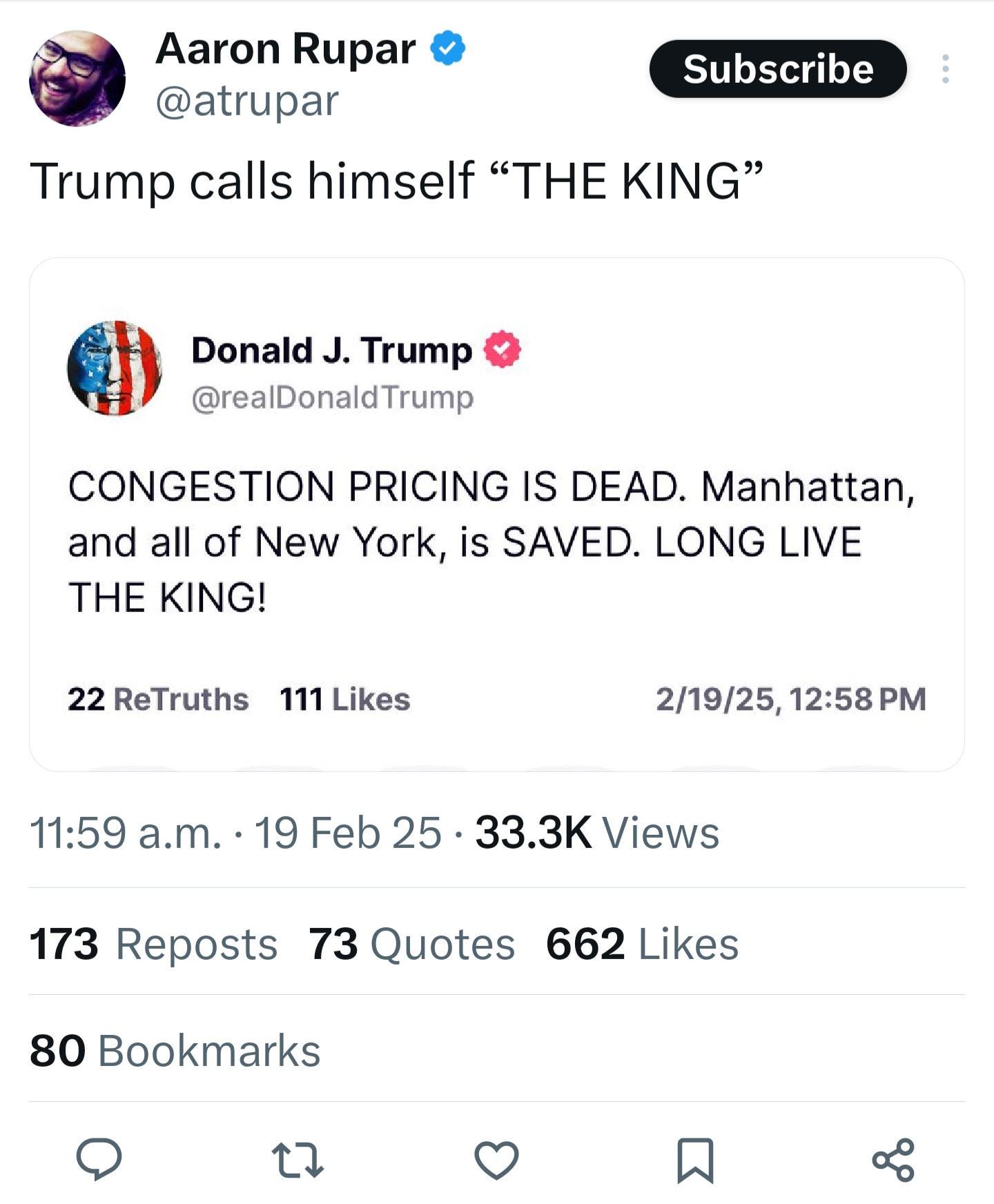Washington, D.C. — President Donald J. Trump signed an unprecedented executive order on February 18, 2025, titled Ensuring Accountability for All Agencies, which critics argue dismantles the constitutional separation of powers and consolidates unprecedented authority in the Oval Office. The order, framed by the Trump administration as a move to “restore accountability,” instead grants the president sweeping control over independent regulatory agencies, federal employees, and the legal interpretations guiding their actions.
Key Provisions of the Executive Order
Centralized Regulatory Control: All federal agencies—including historically independent bodies like the Federal Trade Commission (FTC), Federal Communications Commission (FCC), and Securities and Exchange Commission (SEC)—must submit proposed regulations to the White House for review. This strips agencies of their Congressionally mandated autonomy, subjecting their rulemaking to Trump’s political agenda.
Budgetary Weaponization: The Office of Management and Budget (OMB), led by Trump loyalist Russell Vought, gains authority to adjust funding for agencies based on their compliance with Trump’s priorities. This includes blocking expenditures on activities deemed inconsistent with his policies.
Monopoly on Legal Interpretation: The order declares that only the president and attorney general may issue “authoritative interpretations of law” for the executive branch. Federal employees are barred from advancing legal positions contradicting Trump’s views, effectively silencing dissent and sidelining judicial and congressional authority.
White House Liaisons: Agencies must create Schedule C positions for White House liaisons, embedding political operatives to enforce compliance with Trump’s directives.
Erosion of Checks and Balances
The order’s most alarming feature is its assault on the constitutional framework designed to prevent autocracy. By seizing control of independent agencies—established by Congress to operate free of partisan interference—Trump undermines a century of precedent. Legal scholars warn that this move collapses the separation of powers, merging legislative rulemaking and executive enforcement under one leader.
Judicial and Congressional Sidestepping: The order invalidates the judiciary’s role in interpreting laws and ignores Congress’s authority to create independent agencies. As UC Berkeley law professor Daniel Farber noted, this “regulatory whiplash” could destabilize sectors like finance and labor, where stability relies on nonpartisan oversight.
Threat to Federal Reserve Independence: While the Federal Reserve’s monetary policy is exempt, its regulatory functions (e.g., bank oversight) now fall under Trump’s purview, risking politicization of financial stability.
Historical Parallels: Echoes of 1930s Germany
This power grab mirrors tactics used by Adolf Hitler and the Nazi Party to dismantle democracy in Weimar Germany. Like Trump’s order, the 1933 Enabling Act centralized authority under the chancellor, bypassing the Reichstag (Germany’s parliament) and judiciary. Both leaders exploited crises to justify overreach, framing their actions as “restoring order” while systematically eroding institutional safeguards.
Consolidation of Propaganda: Trump’s rhetoric—declaring himself “The King” on Truth Social and dismissing critics as “deep state” operatives—parallels Nazi efforts to equate dissent with treason.
Weaponizing Bureaucracy: The mandate for White House liaisons recalls Hitler’s placement of loyalists (Gauleiters) to enforce ideological conformity across institutions.
Call to Action: Defend Democracy Now
This executive order is not merely a policy shift—it is a constitutional crisis. If unchallenged, it sets a precedent for unchecked presidential power, enabling future leaders to rule by decree.
We Urge All Americans to:
Contact Elected Representatives: Demand bipartisan opposition to this order. Lawmakers must uphold their oath to the Constitution, not partisan loyalty.
Support Legal Challenges: Organizations like the Center for Democracy & Technology and Public Citizen are preparing lawsuits. Amplify their efforts.
Raise Public Awareness: Share this information on social media, at town halls, and in community forums. Silence enables authoritarianism.
“Congress made independent agencies independent for a reason: to protect the public from political exploitation. Trump’s order isn’t about accountability—it’s about dictatorship,” warned Robert Weissman of Public Citizen.
U.S. Government. (2025, February 18). Ensuring Accountability for All Agencies. Retrieved from https://www.whitehouse.gov/presidential-actions/2025/02/ensuring-accountability-for-all-agencies/
U.S. Government. (2025, February 18). Fact Sheet: President Donald J. Trump Reins in Independent Agencies to Restore a Government that Answers to the American People. Retrieved from https://www.whitehouse.gov/fact-sheets/2025/02/fact-sheet-president-donald-j-trump-reins-in-independent-agencies-to-restore-a-government-that-answers-to-the-american-people/
Broughel, J. (2025, February 19). Trump’s New Executive Order Targets Independent Agencies. Forbes. Retrieved from https://www.forbes.com/sites/jamesbroughel/2025/02/19/trumps-new-executive-order-targets-independent-agencies/
Ballotpedia. (n.d.). Donald Trump's executive orders and actions, 2025. Retrieved February 20, 2025, from https://ballotpedia.org/Donald_Trump%27s_executive_orders_and_actions,_2025
Ballotpedia. (n.d.). Executive Order: Ensuring Accountability for All Agencies (Donald Trump, 2025). Retrieved February 20, 2025, from https://ballotpedia.org/Executive_Order:_Ensuring_Accountability_for_All_Agencies_(Donald_Trump,_2025)
Akin Gump Strauss Hauer & Feld LLP. (2025, February 19). Ensuring Accountability for All Agencies (Trump EO Tracker). Retrieved from https://www.akingump.com/en/insights/blogs/trump-executive-order-tracker/ensuring-accountability-for-all-agencies
Notes:
Government documents (e.g., White House executive orders and fact sheets) are cited with "U.S. Government" as the author.
Ballotpedia entries lack specific publication dates in the search results, so "n.d." is used alongside the retrieval date.
Forbes article includes the author’s name and publication date as listed in the search results.














Share this post